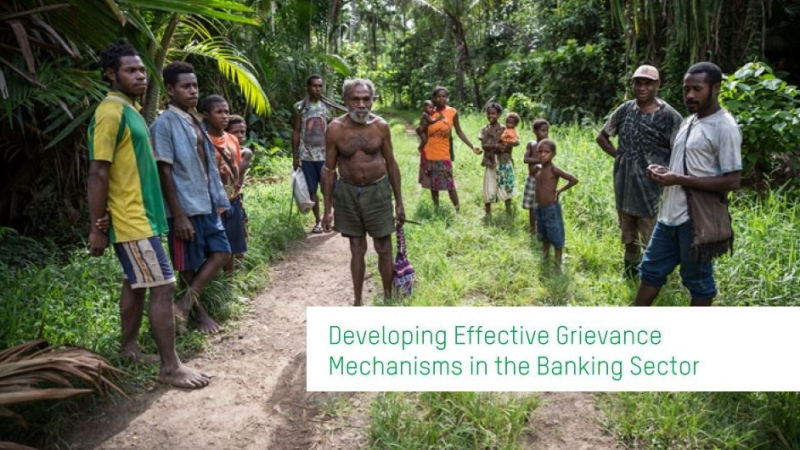BankTrack and Oxfam Australia call on banks to ensure access to remedy for victims of human rights abuses
Ryan Brightwell, BankTrack: email ryan@banktrack.org, telephone +31 24 324 9220
Daisy Gardener, Sustainable Food Advocacy Lead, Oxfam Australia: email daisyg@oxfam.org.au, +61 392899240

Ryan Brightwell, BankTrack: email ryan@banktrack.org, telephone +31 24 324 9220
Daisy Gardener, Sustainable Food Advocacy Lead, Oxfam Australia: email daisyg@oxfam.org.au, +61 392899240
Banks are not doing enough to ensure communities impacted by bank financed activities can get justice – a new paper by BankTrack and Oxfam Australia has found. The briefing paper “Developing Effective Grievance Mechanisms in the Banking Sector” shows that banks have barely begun to implement their responsibilities to develop grievance mechanisms under the United Nations Guiding Principles on Business and Human Rights.
Meanwhile, there are a growing number of cases globally where banks are considered to have contributed to human rights abuses through their finance. These include projects involving farmers being forced off their land, the destruction of sacred indigenous sites, environmental damage and violence against community members.
The UN Guiding Principles on Business and Human Rights, one of the authoritative international standards for responsible business conduct, require that all businesses, including banks, establish or participate in effective operational-level grievance mechanisms for individuals and communities who may be adversely impacted by their business.
Discussion papers produced by banks themselves on their human rights responsibilities have avoided addressing their responsibilities under the section of the Guiding Principles dealing with access to remedy .
The briefing paper explores the responsibilities of private sector banks to ensure access to remedy; sets out the benefits of operational-level grievance mechanisms to banks; and describes what such grievance mechanisms in the banking sector would look like in practice.
BankTrack and Oxfam Australia produced the paper following a series of interviews with representatives of large global banks, and extensive consultation with human rights experts and civil society organizations.
The briefing paper recommends that banks:
- Acknowledge their responsibilities under the Guiding Principles regarding remedy and grievance mechanisms;
- Begin by mapping accountability channels already in place and then building on them;
- Ensure that all stakeholder groups, including communities affected by bank-financed projects and activities, have access to bank grievance mechanisms;
- Ensure grievance mechanisms are designed with careful attention to the UN Guiding Principles’ effectiveness criteria;
- Consider participating in grievance mechanisms in which a number of banks participate — which is open to communities affected by the finance of any bank participating — alongside single-bank mechanisms;
- Ensure the Equator Principles Association develops an effective grievance mechanism that can assess claims that the Equator Principles standards are not being properly applied by banks and project sponsors,
- Write consent into agreements with clients to publish corporate loan and project finance information related to businesses engaged in high risk areas, so that affected people know which banks are financing the activities affecting them.
- Design mechanisms that are empowered and equipped to deliver remedy,
- Engage with clients to ensure their own operational-level grievance mechanisms are effective,
- Seek guidance, including from the UN Office of the High Commissioner for Human Rights and the UN Working Group on Business and Human Rights, where responsibilities are unclear.
Download the briefing paper here.
Notes
The UN Guiding Principles can be found here. For an assessment of banks' human rights policy and practice, see BankTrack, “Banking with Principles?”, 2016
BankTrack, How Banks Contribute to Human Rights Violations, December 2017
The Thun Group of banks has published two discussion papers, the first “on Implications of Principles 16–21” in 2013 and the second “on the implications of Principles 13b & 17” in 2017. (These are available on the website of the Business and Human Rights Resource Centre). The UN Guiding Principles which set out business responsibilities regarding remediation and access to remedy, Principles 22 and 29 - 31, were not discussed in these papers.
